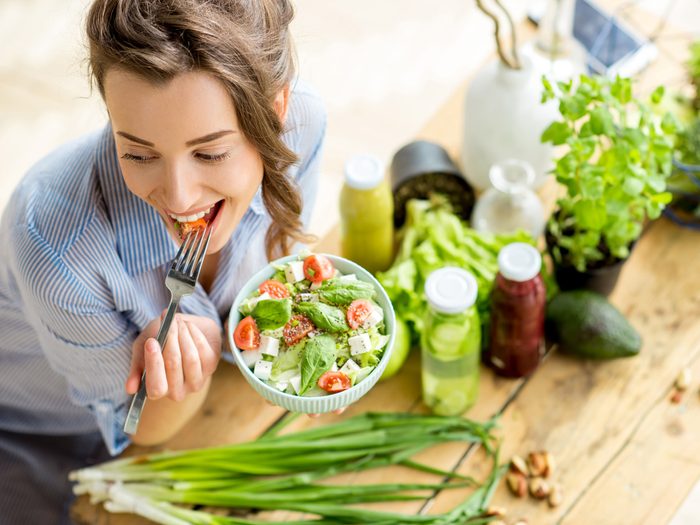
Vegan protein sources
Bill Clinton helped bring veganism into the mainstream in North America by sharing his successes in ditching animal-derived foods in favour of a plant-based diet in 2010. If you are thinking veganism is just a trend, I’d say it’s a “movement”– one that’s here to stay. Most vegan clients I have helped over the years will affirm they are vegan for both ethical and health reasons. Many I’ve spoken to call it a lifestyle and say it’s a “kinder way to live.” I am not a vegan or a vegetarian, but I eat mostly plant-based foods and this has impacted my health in a positive way.
However, when animal-derived foods are eliminated, it can potentially be a one-way ticket to health problems if one’s diet consists of refined carbs, fats and sugar-laden processed foods-part of what has come to be known as the Standard American Diet (S.A.D. – and, yes, it is sad). Because, vegan or not, a diet of junk food that’s calorie dense and nutrient poor will result in nutritional deficiencies. (Here’s how many calories you actually need each day.)
It’s simple to be a smart vegan if you educate yourself on the importance of protein, B12 and iron. (Ask a health professional what’s right for you.)
Protein is the macronutrient most commonly lacking among my vegan clients. Since animal foods are a complete source of protein and have all the essential amino acids-the building blocks of every cell in your body – when you don’t eat eggs, dairy, chicken, meat or fish, you need to be creative with protein choices. Go with a variety of these:
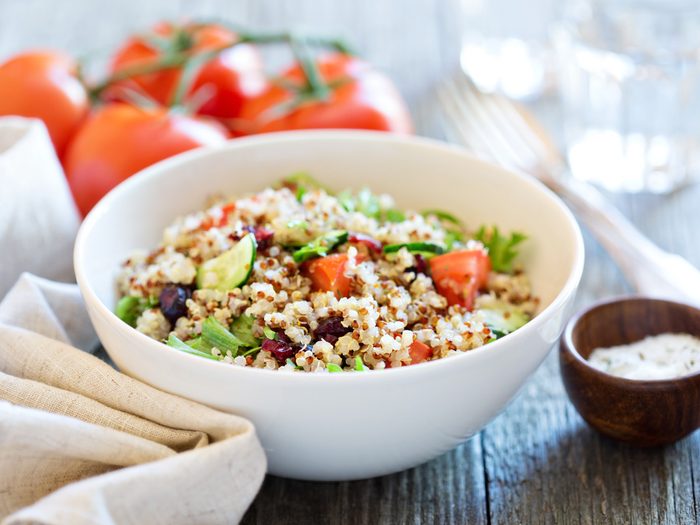
Quinoa
Grain-like, quinoa is in fact a seed, and a great source of the amino acid lysine.
Curious about the keto diet? Here’s how long it’s safe to stay on it.
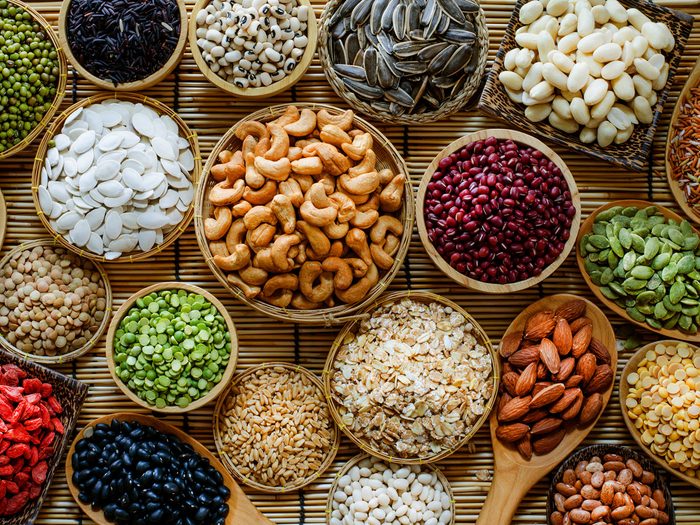
Seeds and nuts
These include chia, sunflower, hemp and pumpkin seeds; almonds; walnuts; cashews; and pecans. Here’s more on the benefits of our favourite super seeds.
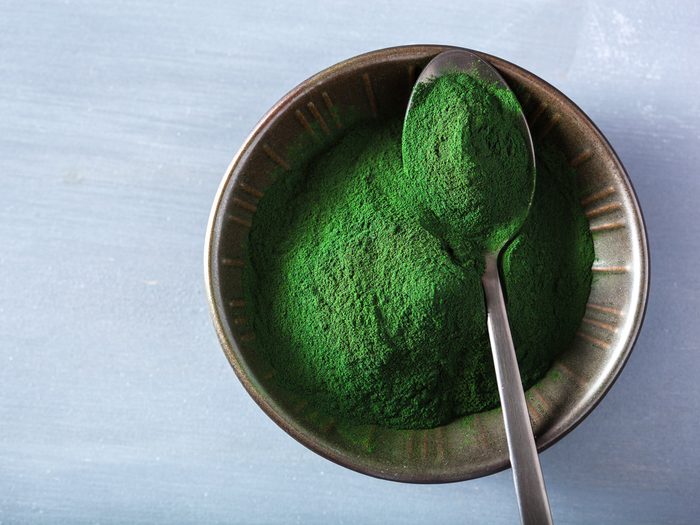
Spirulina
This is a water-grown cyanobacteria that contains all the essential amino acids. Bonus: It is high in gamma-linolenic acid (GLA), an essential fatty acid sometimes called vitamin F. GLA helps to balance hormones and keep inflammation in check. Here are more superfood powders to add to your smoothies, baking, and more.
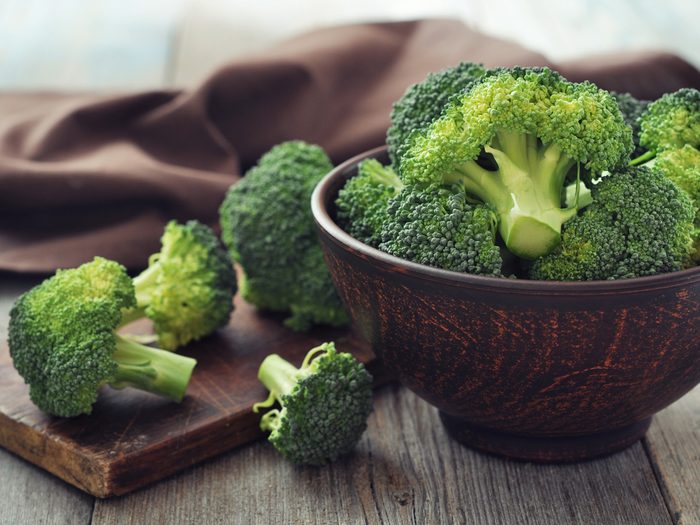
Vegetables
One cup (250 mL) of broccoli or spinach has five grams of protein; two cups (500 mL) of cooked kale have five grams. (These foods are actually higher in iron than spinach!)
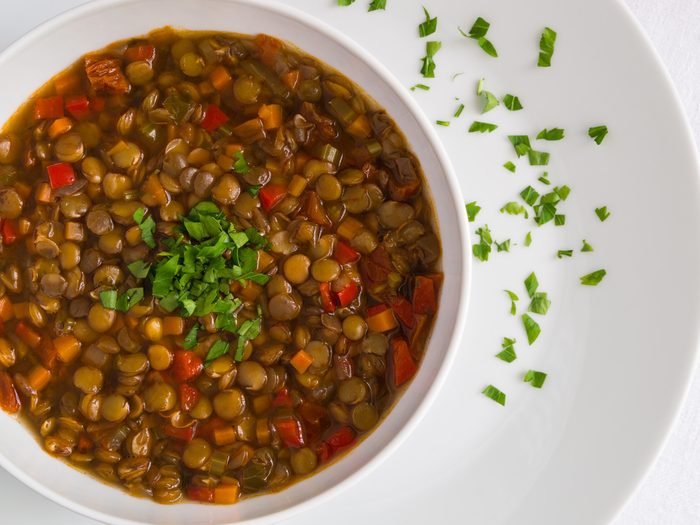
Lentils and tempeh
Tempeh (fermented soy) has a whopping 20 to 30 grams of protein per cup. Lentils are richer in protein than many other legumes.
These are the best sources of protein, according to the new Canada’s Food Guide.
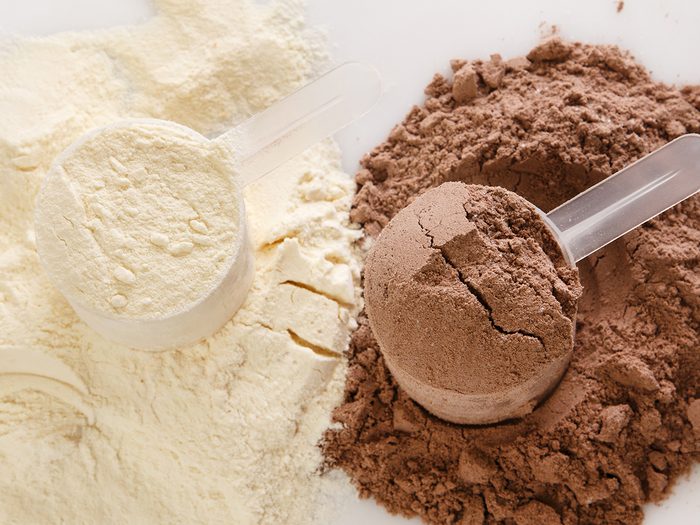
Supplements
Look for plant-based protein powders with a blend of plant proteins to ensure a variety of amino acids.
You might also consider a collagen supplement. Here are our favourite brands, plus where to buy them in Canada.
Joy McCarthy is a certified holistic nutritionist, best-selling author, and the founder of Joyous Health.
